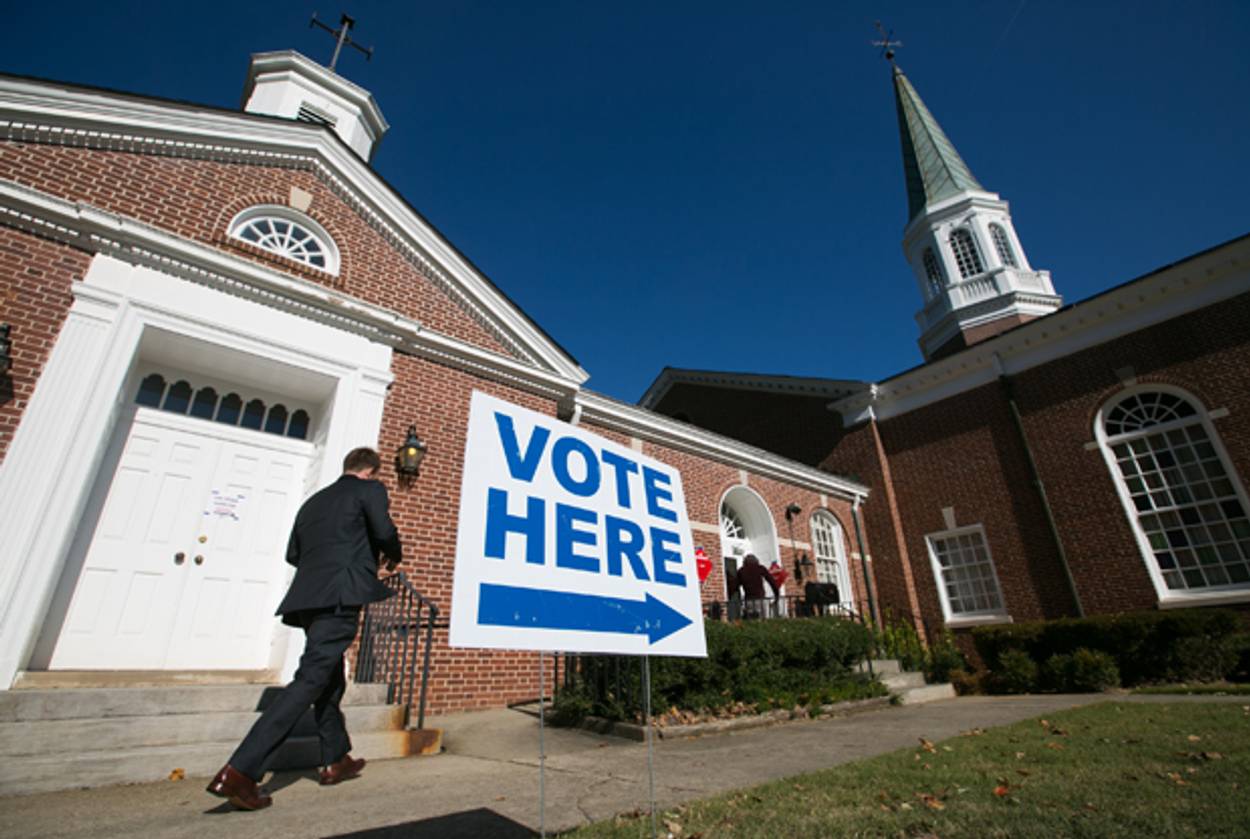Where Are All the Jewish Political Leaders?
They’re absent from the midterm elections, and quiet on today’s issues




Today’s midterm elections, which have dominated the news for the past few months, appear to be one of the least “Jewish” election seasons in a long time. Despite a tumultuous summer in Israel, American debate related to the Middle East has focused almost exclusively on ISIS and Syria, instead of the usual spotlight on Iran and endless discussion about Israel. The most contentious legislative battles this election cycle are over health care, equal pay for women, and immigration. Quirks in the Senate election schedule have led to just two of the 12 Jewish senators on the ballot this year, Al Franken (D-MN) and Brian Schatz (D-HI), neither of whom are in danger of losing their seat. Jack Markell (D-DE), the only Jewish governor, will not be up for reelection until 2016.
It’s a change for Jewish voters who, in the last 15 years have seen Joe Lieberman (D-CT) come within a few votes of the vice-presidency; Russ Feingold (D-WI) be touted as a possible presidential candidate; Eric Cantor (R-VA) be seriously considered as a future Speaker of the House; and Rahm Emanuel (D-IL) and David Axelrod as key leaders in the White House. Now, Lieberman is retired; Feingold is working as a “special representative” to sections of Africa; Cantor, the only Jewish Republican in Congress, resigned after one of the most shocking political upsets in modern memory; and Axelrod is now a pundit for MSNBC. Rahm Emanuel is mayor of Chicago, but he’s far from the national political scene.
There are some bright spots for future Jewish political leaders though. A few Jewish Republicans are on the ballot in states across the country. Lee Zeldin, 34, who would represent sections of Long Island in the House, appears to have the best chances of winning a seat, but as a freshman Congressman he’d still be years away from national prominence. Steve Israel, also a Congressman from New York, is quietly working his way through the ranks of the Democrats: he’s currently serving as head of the Democratic Congressional Campaign Committee, but hasn’t yet stepped into the national spotlight. Bernie Sanders, an independent senator from Vermont, is toying with a run for the presidency, although it’s highly unlikely he’d win.
It also seems that issues directly related to the American Jewish community are far from the minds of most candidates. While the Middle East is still talked about in terms of civil war in Syria and ISIS, debate over Israel has remained off the table. Educational policy, which once revolved around plans for school vouchers and increased public funding for private schools (the Orthodox Union is just one Jewish organization that supports such proposals) has been replaced with the more muted debate over the implementation of common core standards, which will have little affect on Jewish day schools. Even the rise of anti-Semitism in Europe has remained off the table, even for candidates looking to score political points.
Much of this can easily be explained by the nature of a midterm election, when legislative issues such as taxes, immigration, and educational standards are more relevant to the House and Senate candidates than executive issues like foreign policy and international negotiation. Each election is different, and one without issues directly related to the Jewish community bears little indication of the future. But those who wore Joe Liebermann yarmulkes in 2000 are certainly rubbing their eyes 15 years later, wondering where all the Jewish political leaders have gone.
Zack Schrieber is an intern at Tablet Magazine. Follow him on Twitter @zschrieber.